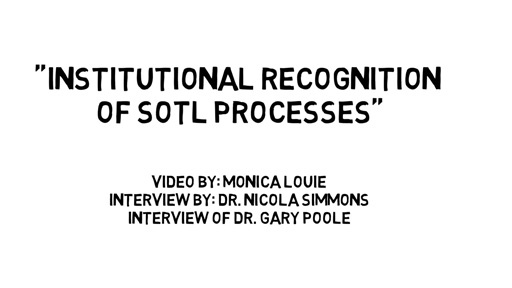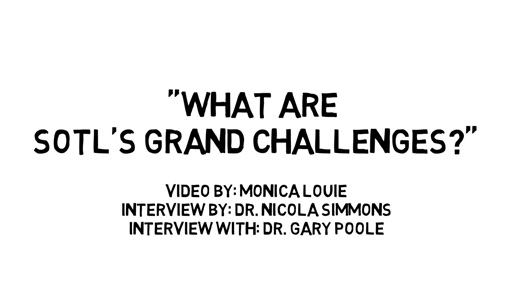3 Supporting and sustaining SoTL
As you come to the end of the course, watch these three videos featuring Gary Poole, The University of British Columbia, which will help you to reflect on the motivation for conducting SoTL and the challenges of supporting and sustaining SoTL.
Activity 8 Reflecting on SoTL practice
In the first video of 3 minutes 49 seconds, Gary discusses how the process of conducting SoTL is more significant than the actual outcomes.
Institutional recognition of SoTL processes
As you watch this video, make a note of your reflections in the context of one or more of these aspects: your discipline, department, institution and country.

Transcript: Video 5 SoTL: Institutional recognition
Discussion
Gary says when rewarding SoTL work, an institution should not only focus on the outcomes but also the processes of conducting SoTL, as the processes in SoTL practice are equally important. He says that reflective practice (which is central to SoTL) should be rewarded and should be integral to the culture of an institution.
In the second video of 2 minutes 14 seconds, Gary continues to make a case for SoTL.
Making a case for SoTL
As you watch this Center for Engaged Learning video, write down experiences and reflections from your context:
Will you have to make a case for SoTL in your department or institution? How will you do that?
Alternatively, have you or your colleagues made a case for SoTL in the past? Which strategies did you use and what were your experiences?
Transcript: Video 6 Making a case for SoTL
Making a Case for SoTL [Tip: hold Ctrl and click a link to open it in a new tab. (Hide tip)] video by Center for Engaged Learning, Elon University, https://creativecommons.org/ licenses/ by-nc-nd/ 4.0/
Discussion
In the video, Gary laments that SoTL is not recognised as it should be. In fact, he finds it puzzling when senior management in some institutions don’t engage with the outcomes of SoTL activity. Gary says that SoTL in all its forms has the potential to inform the institution about student learning. An institution may have important statistical data about student performance, for example, but SoTL can provide microscopic/fine analysis of this data on what is happening at a classroom or module level.
In the third three minute video, Gary reflects on two challenges for supporting and sustaining SoTL activity.
What are SoTL’s grand challenges?
While watching this video, write down two challenges that you will experience or have experienced in supporting and sustaining SoTL in your context.

Transcript: Video 7 SoTL: Grand challenges
Discussion
Gary discusses several requirements for recognising and sustaining SoTL practice: national funding sources to support SoTL; rewards at institutional level to help the SoTL agenda even if educators are intrinsically driven; and awards and promotion committees at institutional level should understand and recognise SoTL.
Please remember that you have the option of downloading your answers for all the activities in this course by clicking on the link (‘Download your answers for the documents on this course’) which appears on the left-hand side of each course page.
